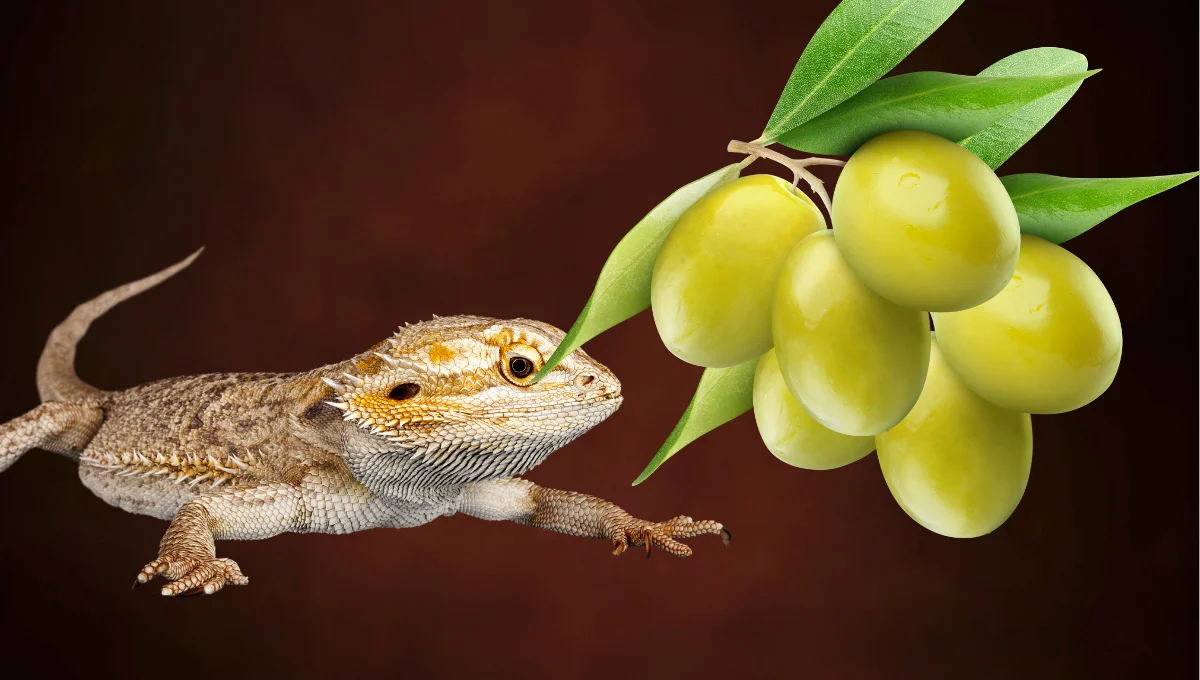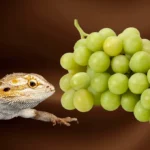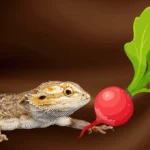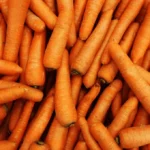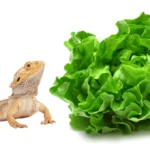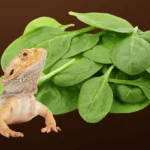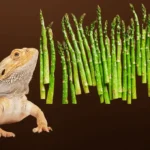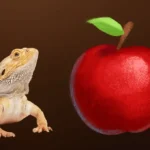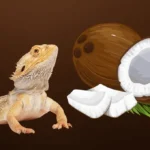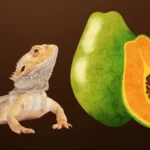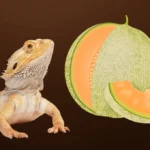Bearded dragons are beloved pets that require a balanced and varied diet to maintain optimal health. While their primary diet consists of leafy greens, vegetables, and insects, pet owners often wonder if certain human foods are safe for their bearded dragons. One such food is olives.
This article will explore whether olives are safe for bearded dragons, their nutritional benefits and risks, and how they should be offered, if at all, to your pet.
Understanding the Nutritional Profile of Olives
Olives are small, oily fruits commonly used in cooking and as snacks. They are known for their unique flavor and high-fat content, but how does their nutritional profile affect bearded dragons?
Vitamins and Minerals in Olives
- Vitamin E: Olives are rich in vitamin E, an antioxidant that supports skin health and immune function. While beneficial in small amounts, bearded dragons can obtain sufficient vitamin E from other, more appropriate sources.
- Iron: Olives contain a moderate amount of iron, which is vital for oxygen transport in the blood. However, the high-fat content in olives may negate this benefit.
- Sodium: One of the primary concerns with olives is their high sodium content, especially in commercially prepared varieties. Excess sodium can be harmful to bearded dragons, leading to dehydration, kidney issues, and other health problems.
Fat Content in Olives
Olives are high in healthy fats, particularly monounsaturated fats, which are beneficial for humans. However, bearded dragons require a low-fat diet, as their natural prey and plant-based foods are not rich in fats. Feeding high-fat foods like olives can lead to obesity, liver problems, and other health issues in bearded dragons.
Can Bearded Dragons Safely Eat Olives?
While olives contain some beneficial nutrients, they are not an ideal food for bearded dragons. Here are the key reasons why olives should be avoided:
1. High Sodium Content
The sodium content in olives is a significant concern. Bearded dragons do not have the same capacity as humans to process high levels of sodium, and excessive sodium intake can lead to serious health issues, including dehydration and kidney damage. Most commercially available olives are cured in brine or salt, making them unsuitable for bearded dragons.
2. High Fat Content
As mentioned earlier, olives are high in fats, particularly monounsaturated fats. While these fats are healthy for humans, bearded dragons are not equipped to handle a high-fat diet. Consuming fatty foods like olives can lead to obesity, fatty liver disease, and other metabolic disorders in bearded dragons.
3. Lack of Essential Nutrients
Olives do not provide the essential nutrients that bearded dragons need to thrive. While they contain some vitamins and minerals, these nutrients can be more effectively obtained from other, more suitable foods. Feeding olives to your bearded dragon may contribute to nutritional imbalances.
4. Potential Choking Hazard
The small size and firm texture of olives can pose a choking hazard to bearded dragons, especially if the olive still contains its pit. Removing the pit does not entirely eliminate the risk, as the olive’s flesh can still be difficult for a bearded dragon to chew and swallow safely.
Alternatives to Olives for Bearded Dragons
Instead of olives, there are plenty of other foods that are safe and nutritious for bearded dragons. Here are some alternatives that can be included in their diet:
1. Leafy Greens
Leafy greens should make up a significant portion of a bearded dragon’s diet. These greens are low in fat, high in fiber, and packed with essential vitamins and minerals.
| Leafy Green | Nutritional Benefits | Feeding Frequency |
|---|---|---|
| Collard Greens | High in calcium and vitamin A | Daily |
| Mustard Greens | Rich in vitamins A, C, and K | Daily |
| Dandelion Greens | Good source of calcium and antioxidants | Daily |
| Turnip Greens | High in calcium and low in oxalates | Daily |
| Kale | High in vitamins A, C, and K | 2-3 times a week |
2. Vegetables
Vegetables are another crucial component of a bearded dragon’s diet. They provide vitamins, minerals, and fiber that support overall health.
| Vegetable | Nutritional Benefits | Feeding Frequency |
|---|---|---|
| Bell Peppers | Rich in vitamins A and C | 2-3 times a week |
| Squash | High in fiber and low in calories | 2-3 times a week |
| Carrots | Good source of beta-carotene and fiber | 2-3 times a week |
| Zucchini | Low in fat and high in water content | 2-3 times a week |
| Sweet Potatoes | High in vitamin A and fiber | 2-3 times a week |
3. Fruits
While fruits should only be offered occasionally due to their sugar content, they can be a healthy treat for bearded dragons when given in moderation.
| Fruit | Nutritional Benefits | Feeding Frequency |
|---|---|---|
| Strawberries | Rich in vitamin C and antioxidants | 1-2 times a week |
| Blueberries | High in antioxidants, low in sugar | 1-2 times a week |
| Apples (peeled) | Provide fiber and vitamin C | 1-2 times a week |
| Papaya | High in vitamin A and fiber, aids digestion | 1-2 times a week |
| Mango | Rich in vitamins A and C, high in sugar | 1-2 times a week |
How to Safely Feed Fruits and Vegetables to Bearded Dragons
When offering fruits and vegetables to your bearded dragon, it’s important to follow these guidelines:
1. Wash Thoroughly
Always wash fruits and vegetables thoroughly to remove any pesticides, dirt, or contaminants. This ensures that your bearded dragon is not exposed to harmful substances.
2. Cut into Small Pieces
Cut fruits and vegetables into small, manageable pieces to prevent choking. Bearded dragons have small mouths, and large pieces of food can be difficult for them to chew and swallow.
3. Offer in Moderation
While vegetables should be a staple in your bearded dragon’s diet, fruits should be offered in moderation due to their sugar content. Excessive fruit consumption can lead to obesity and other health issues.
4. Remove Pits and Seeds
If offering fruits like apples or mangoes, always remove the pits and seeds, as they can be toxic or pose a choking hazard to bearded dragons.
5. Monitor Your Dragon’s Health
After introducing any new food to your bearded dragon’s diet, monitor them for any signs of digestive discomfort, changes in behavior, or other health issues. If any problems arise, discontinue the food and consult a veterinarian.
Summary of Olive’s Nutritional Value
| Nutrient | Amount in Olives | Benefit/Risk |
|---|---|---|
| Vitamin E | High | Supports skin health but is available in other foods |
| Iron | Moderate | Supports oxygen transport |
| Sodium | High | Can lead to dehydration and kidney issues |
| Fat | High | Can lead to obesity and liver problems |
Conclusion
While olives may be a tasty and nutritious snack for humans, they are not suitable for bearded dragons. The high sodium and fat content, along with the potential for choking hazards, make olives an unsafe choice for your pet. Instead, focus on offering a variety of leafy greens, vegetables, and occasional fruits that are better suited to meet the nutritional needs of your bearded dragon. By providing a balanced and appropriate diet, you can ensure that your bearded dragon remains healthy and happy for years to come.
